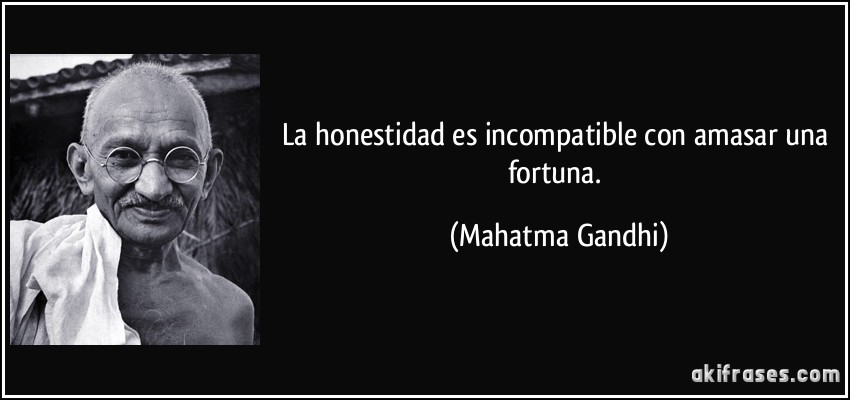HONESTY :HONESTY: It is the value of telling the truth, be decent, Coy, reasonable, fair or honest. From a philosophical point of view, it is a human quality that is to act according as one thinks and feels. It refers to the attribute which refers to person who shows, both in their work and in their way of thinking, as fair, honest and full. Who works with honesty will be marked by the rectitude of mind, integrity with which proceeds throughout on what acts, respecting above all things standards considered as correct and appropriate in the community in which he lives.In its most obvious sense, honesty can be understood as the simple respect for the truth in relation to the world, the facts and the people; in other ways the honesty also involves the relationship between the subject and others, and the subject with itself. In its most obvious sense, honesty can be understood as a simple respect for the truth in relation to the world, the facts, and people; in other ways the honesty also involves the relationship between the subject and others, and the subject with itself.According to Confucio honesty. Honesty is one of the values and most important components of a healthy personality with your surroundings and others.At its most superficial level, are all actions carried out by a person in order to build the ideal society, intended to fulfill his wishes, either short term (evil) or long term (well). Admitting that seeks immediate gratification, however, can help transform a wrongful act the same way that hide the intentions in the long run worse, one can make a good action. A fundamental principle in this theory is that a good person must show his feelings sincerely on his face, in such a way that it facilitates the coordination of all in the achievement of long-term improvements. This sincerity, covering even the facial expression, helps to achieve honesty with oneself, and that human activities are more predictable, friendly and enjoyable. In this first version, honesty is accomplished by looking only for the own benefit. Also here the temporal aspect of actions is important but in this case as a period of time. Thus, for example, since parents spend the first three years of their children's lives just to take care of them, children must be kept the first three years after the death of the parents. On this level one is honest about its own obligations and duties, even when there is no one to judge them or which is immediately affected. This part of the moral code is related to worship the ancestors, which is the deepest level of honesty, from which arise and therefore also the. The morals of Confucius is based on and the understanding of others, which requires a prior self-understanding, which give rise to moral norms, rather than of a prior, granted by any. The "Confucianism" of the "categorical imperative" imperative categorical version consisted of treating the lower as you like to your superiors treated you. "Virtue" is based on "Harmony" with others, and to accept that at some point in our lives we are all at the mercy of other people. Honesty is therefore to put in the hypothetical place of their future lives, and past and future, generations and choose not to do or say anything that might sully the honour or reputation of the family.In part due to an incomplete understanding of these deeper notions of honesty, it is common in certain cultures of "Asia" to be called "barbarians" to those who do not know them and meet them. Despite the fact that sometimes certain Asian cultures involve "Ambiguity" levels.
viernes, 3 de octubre de 2014
honesty
Suscribirse a:
Comentarios de la entrada (Atom)

No hay comentarios.:
Publicar un comentario